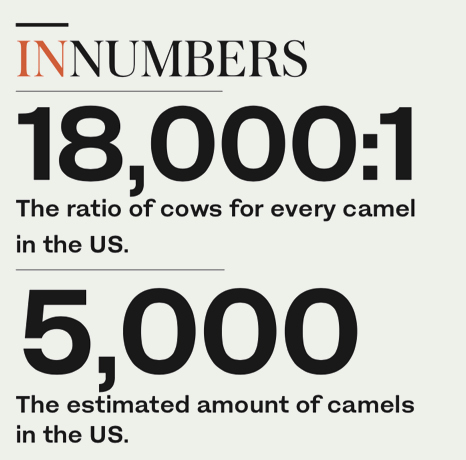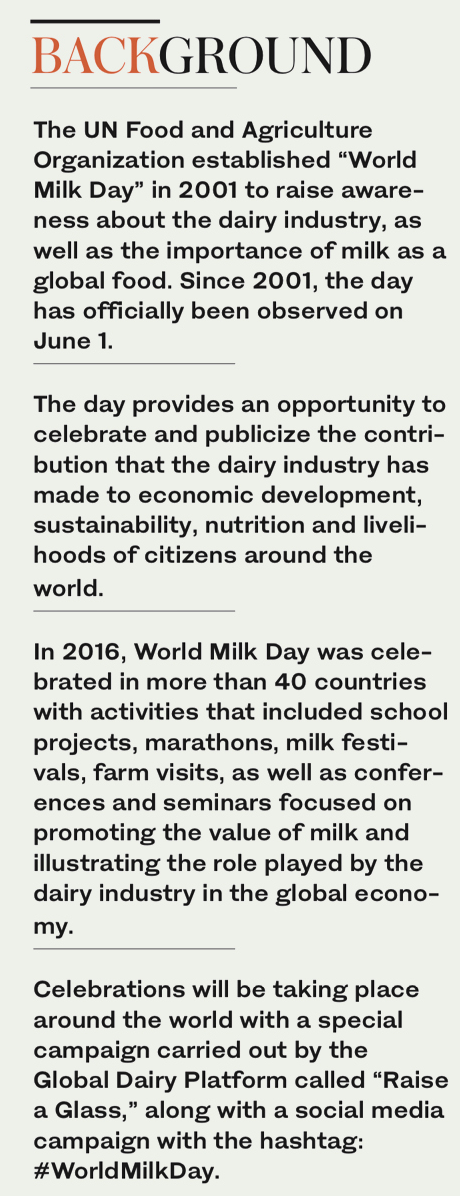JEDDAH: Walid Abdul-Wahab is no ordinary dairy farmer. He is the Saudi entrepreneurial pioneer credited with bringing camel milk to California and the wider US through his Desert Farms company.
As the company’s CEO and founder, Abdul-Wahab has discovered a niche in the market for the growing demand for a raw unpasteurized alternative to cow’s milk — and found it in none other than Saudi Arabia’s national animal.
“When Desert Farms commercialized camel milk came to the West, we didn’t just bring a new product to consumers, we introduced a whole new market segment,” Abdul-Wahab said.
Abdul-Wahab was raised in Jeddah. An alumni of the British International School of Jeddah, he continued his education abroad at community college in Santa Monica, California. After two years there, Abdul-Wahab transfered to the University of Southern California, where he studied business administration, finance and entrepreneurship and graduated in 2013.
 As soon as Abdul-Wahab arrived in the US in the spring of 2009, he was impressed by how health-conscious the Californian community was. “Raw and organic” were the be-all and end-all of anything considered healthy and nutritious and a clear indicator of where the market was heading in the US.
As soon as Abdul-Wahab arrived in the US in the spring of 2009, he was impressed by how health-conscious the Californian community was. “Raw and organic” were the be-all and end-all of anything considered healthy and nutritious and a clear indicator of where the market was heading in the US.
One summer while Abdul-Wahab was visiting his family in Jeddah, he began the search for what would lead to the only source of raw milk in the region, that of camels.
Despite the millions of camels in Saudi Arabia, camel milk has not previously been commercialized in the Kingdom. It is rarely found in supermarkets as it is mainly seen as for medicinal use only. Proven to be one of the few complete foods available to humans, camel milk contains all of the proteins, carbohydrates, fats and essential vitamins needed to nourish an individual without requiring any additional food or water. It is for this reason that for thousands of years Bedouins and nomads lived off camel milk for months at a time while trekking through the desert.
Nutritionists have estimated that anywhere from 65 percent to 75 percent of the world population is lactose intolerant, which is why camel milk is proving to be the ideal alternative. As well as containing three times as much vitamin C per serving than cow’s milk, camel milk does not contain beta-lactoglobulin, a whey protein found in cow’s milk that causes allergic reactions. The amount of lactose in camel milk is so small that even a patient suffering from lactose intolerance is able to digest it without discomfort.
Returning to California with his newfound love and knowledge for camel milk, Abdul-Wahab took a tour across the US, from the East Coast to the Midwest, in search of camel farmers who could supply the milk required for his business idea.
Abdul-Wahab found his initial business partners within the Amish community of Missouri. As Amish people are reluctant to adopt modern technology, Walid acted as a marketer and distributor for their camel milk, helping to bring its nutritional and medicinal benefits to the wider US.
After extensive market research, Walid attended trade shows where he distributed samples and met potential retailers. A big selling point for Desert Farms was the fact that camel milk is more nutrient-dense than cow’s milk and has medicinal benefits, making it an instant candidate as a dairy alternative. “Camel milk has some unique properties that mimic the health benefits of breast milk, which makes it hypoallergenic and unlikely to cause intolerances,” Abdul-Wahab said. 
All of the camels that supply milk for Desert Farms are pasture-raised and eat a complex diet of grass, hay and alfalfa pellets. None of the camel milk is imported into the US but bottled at source, and either immediately distributed locally or frozen to be shipped nationwide. Sold in a variety of ways, Desert Farms offers camel milk in forms including raw camel milk; raw camel milk (frozen); raw camel milk kefir;pasteurized camel milk and raw camel milk powder.
While camel milk continues to increase in popularity in the US, obstacles are ever present in an industry where your product animal is outnumbered 18,000:1 — the ratio of cows for every camel in the US, which has been estimated at about 5,000 camels overall. Additionally, a cow can produce upwards of 40 liters of milk per day, while a camel can produce an average of 7 liters of milk per day.
Desert Farms have expanded their product line to include camel milk soaps and other camel milk-based beauty products, as well as camel hump fat, which can be used as an alternative to butter and cooking oil.
Next on the agenda for Desert Farms is venturing into the Saudi market and commercializing the production and distribution of camel milk.
“The future will be to set up the world’s largest camel dairy in Saudi Arabia and make our region the powerhouse of camel milk production, as well as produce other desert products for the global market,” Abdul-Wahab said.























